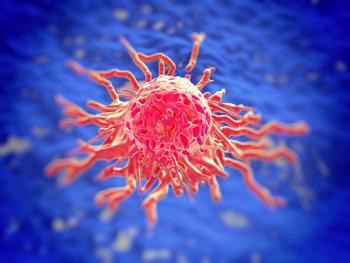
IMX-110, which was granted a rare pediatric disease designation for patients with rhabdomyosarcoma, is currently being assessed as part of a phase 1b/2a study.

Your AI-Trained Oncology Knowledge Connection!


IMX-110, which was granted a rare pediatric disease designation for patients with rhabdomyosarcoma, is currently being assessed as part of a phase 1b/2a study.

The combination of quaratusugene ozeplasmid immunogene therapy plus pembrolizumab was granted fast track designation by the US FDA for the treatment of patients with unresectable stage III or IV non–small cell lung cancer who previously progressed on pembrolizumab.

CD123- and CD3-engaging bispecific antibody, APVO436, caused cytokine release syndrome that could be managed through the use of steroids in patients with relapsed/refractory acute myeloid leukemia and myelodysplastic syndrome.

Patients with relapsed or refractory multiple myeloma may benefit from treatment with teclistamab, for which a biologics license application was submitted to the FDA.

Patients with EGFR-mutated metastatic non–small cell lung cancer may achieve benefit from treatment with patritumab deruxtecan, which was granted breakthrough therapy designation by the FDA.
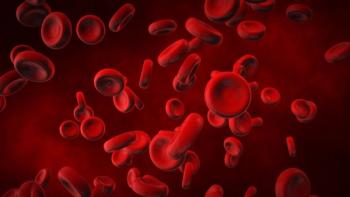
CYNK-001 was recently granted fast track designation by the FDA for the treatment of patients with acute myeloid leukemia.

Preclinical evidence supports further research in combining a menin inhibitor plus targeted therapies, as this may result in superior efficacy for patients with KMT2A-rearranged and NPM1-mutated acute myeloid leukemia.

This episode features Don Dizon, MD, discussing how LGBTQ+ patients with cancer navigate the world of cancer care, and the critical steps needed to improve their experiences.
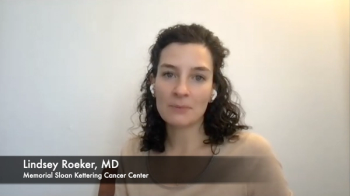
Lindsey Roeker, MD, spoke about using a combination that includes a Bruton tyrosine kinase inhibitor, PI3K inhibitor, and an anti-CD20 monoclonal antibody for patients with chronic lymphocytic leukemia.

Patients receiving hematopoietic stem cell transplantation appeared to have improved outcomes and a decreased incidence of acute graft-versus-host disease after being treated with itolizumab.
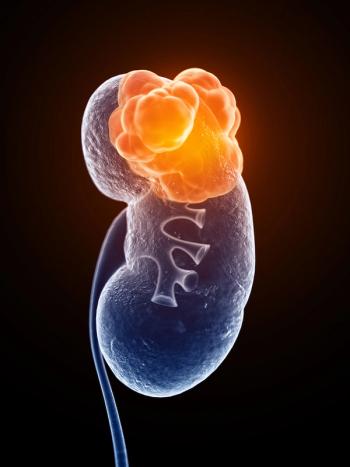
The new drug application for dovitinib as a third-line treatment for patients with renal cell carcinoma is supported by a pre-marketing approval for companion diagnostic, Dovitinib-DRP.
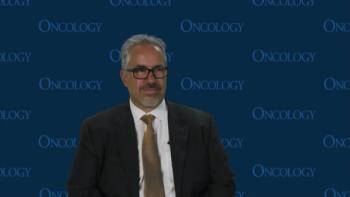
At ASH 2021, CancerNetwork® spoke with Ruben Mesa, MD, of UT Health San Antonio MD Anderson Cancer Center, about which data he is most excited to see for patients with myelofibrosis.

The combination of nivolumab plus ipilimumab demonstrated a survival benefit among patients with active melanoma and brain metastases.
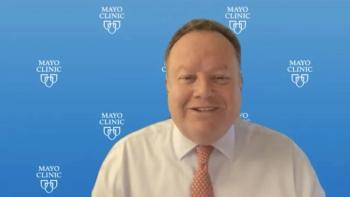
CancerNetwork® spoke with Rafael Fonseca, MD, about real-world use of daratumumab-containing regimens as either frontline or second-line therapy for transplant-ineligible multiple myeloma.

The study from Cancer Discovery examined a 3-case autopsy series, finding associations between TROP2 absence and limited clinical responses to sacituzumab govitecan for patients with metastatic triple-negative breast cancer.
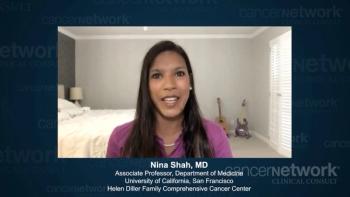
Nina Shah, MD, discusses the potential therapies that could emerge in 2022 for multiple myeloma.

A longer treatment-free survival was seen in patients with advanced renal cell carcinoma who were treated with first-line nivolumab and ipilimumab compared with sunitinib.

An interim analysis demonstrated positive efficacy and safety in patients with metastatic solid tumors who were treated with etigilimab plus nivolumab.
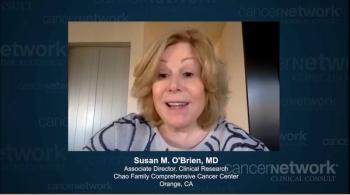
Susan M. O’Brien, MD, on potential upcoming approvals in 2022 for treating chronic lymphocytic leukemia with combination therapies.

Nina Shah, MD, looks to the future of treating patients with multiple myeloma.

At ASH 2021, CancerNetwork® spoke with Ruben Mesa, MD, of UT Health San Antonio MD Anderson Cancer Center, about which presentation from the conference could be practice changing for patients with myelofibrosis.

Amy Comander, MD, shares her thoughts on key developments in breast cancer care that took place in 2021, and reflects on what the future might hold for this patient population

Susan M. O’Brien, MD, on upcoming 2022 trends in chronic lymphocytic leukemia treatment.

Nina Shah, MD, discusses maintenance therapies in emerging clinical trials for multiple myeloma.

Patients who have been diagnosed with acute graft-versus-host disease with high levels of amphiregulin could be at a higher risk for early mortality.

Cervical cancer incidence rates were significantly higher in the lowest-socioeconomic status neighborhoods vs the highest-socioeconomic status neighborhoods in New York City.

Susan M. O’Brien, MD, on why clinical trial enrollment is so important for patients with chronic lymphocytic leukemia.
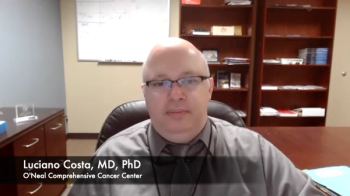
Luciano Costa, MD, PhD, spoke about the potential application of daratumumab, carfilzomib, lenalidomide, and dexamethasone for multiple myeloma in a real-world setting.

Black and Hispanic patients continue to be notably underrepresented in clinical cancer research, although research noted that participation is on the rise.

Prognostic awareness impacted patients quality of life through psychosocial distress and symptoms burden.